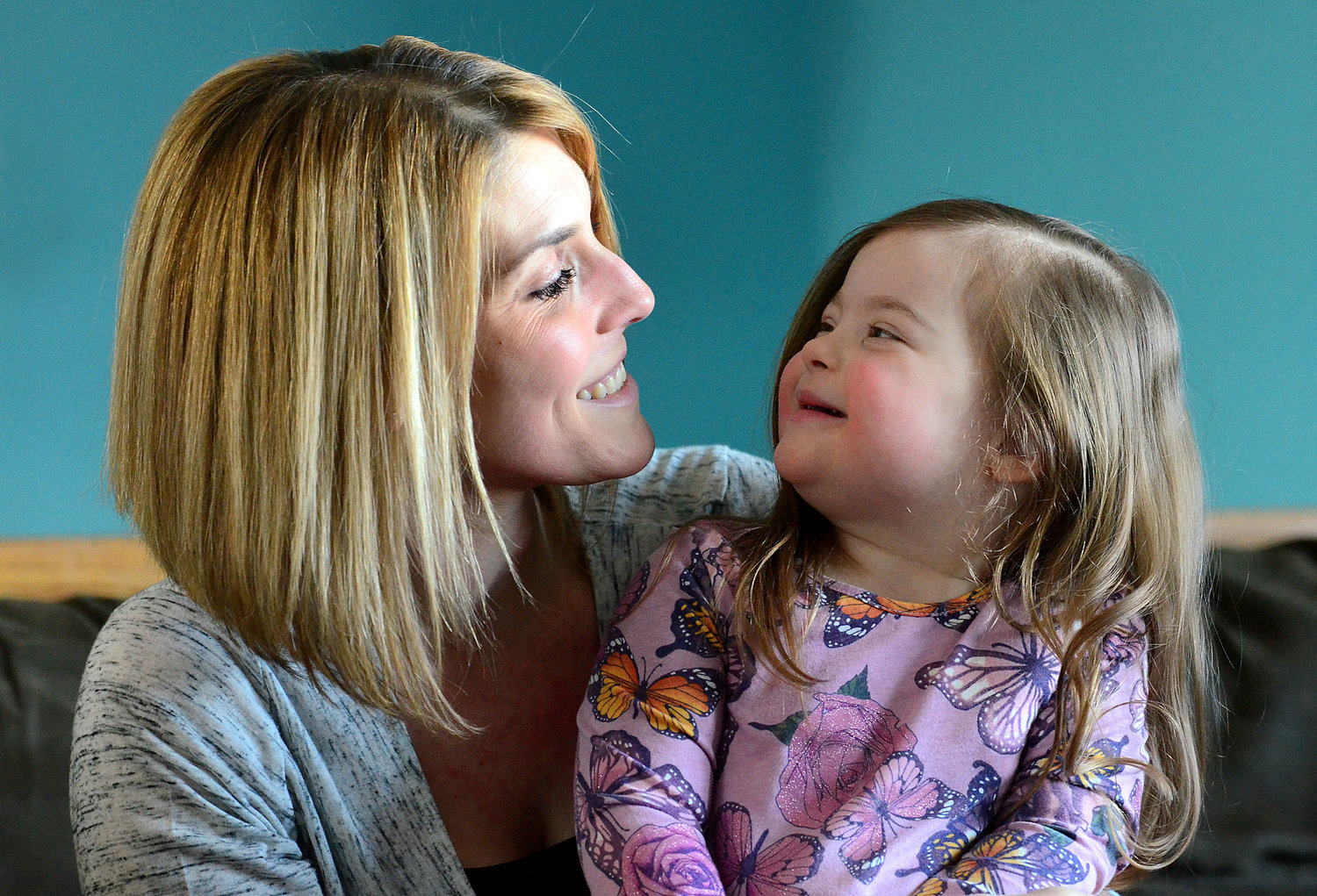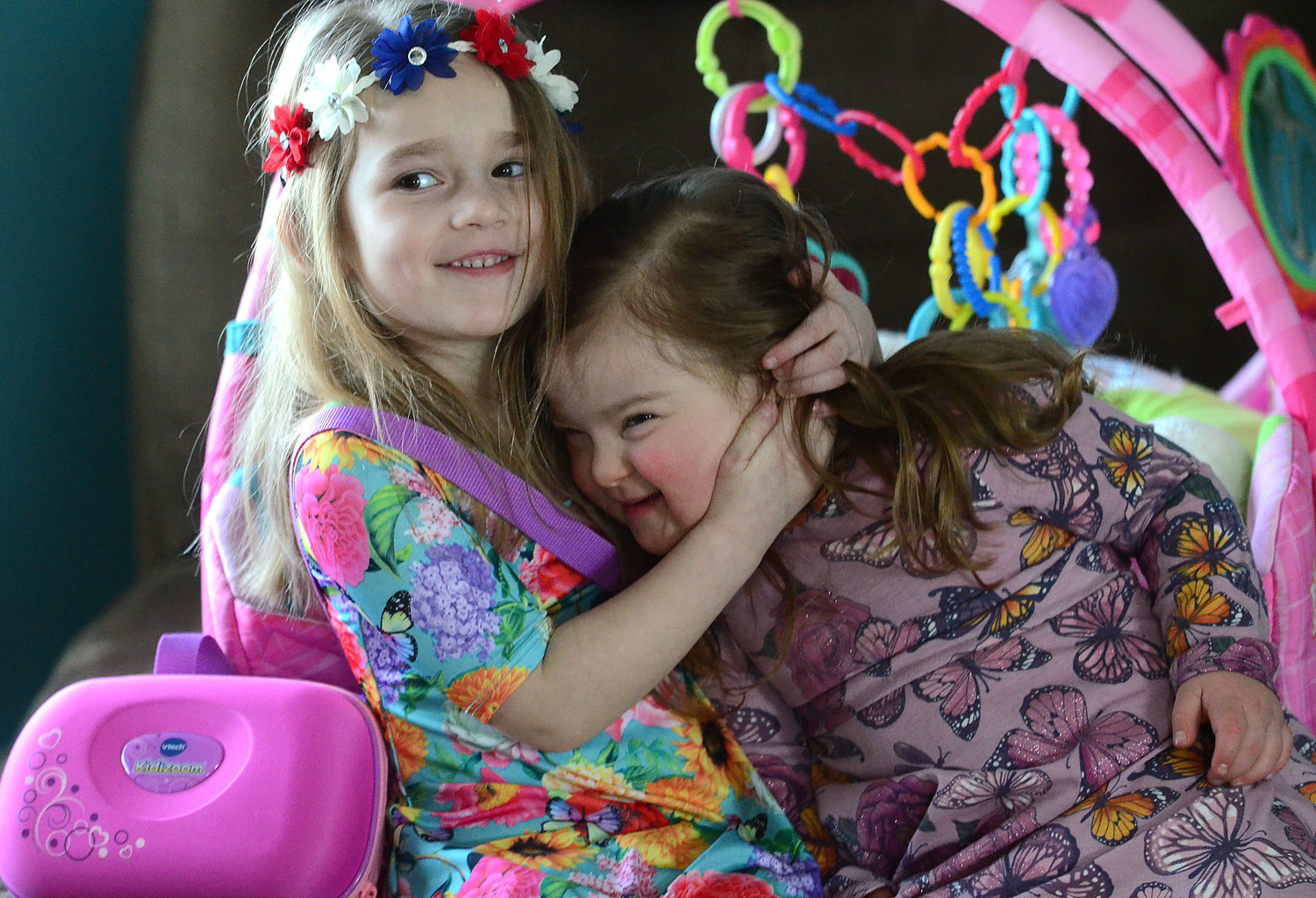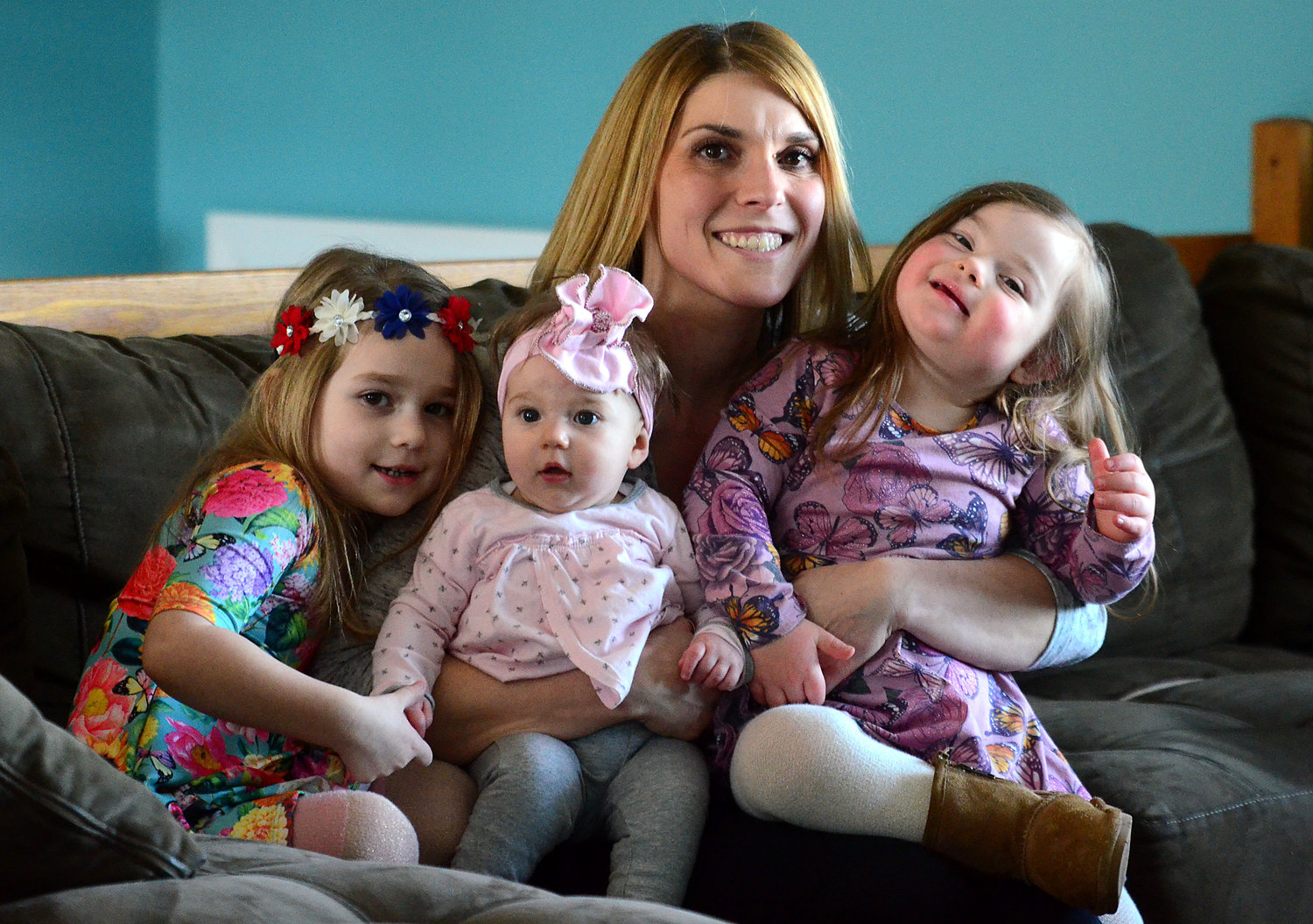- TUESDAY, APRIL 16, 2024
Living with Down: A mother hopes to raise money and awareness
Even before walking through the pediatric office’s door, Ashley Alexander just knew. From the moment she was first handed her newborn child, to the weeks of appointments that soon followed, the …
This item is available in full to subscribers.
Please log in to continue |
Register to post eventsIf you'd like to post an event to our calendar, you can create a free account by clicking here. Note that free accounts do not have access to our subscriber-only content. |
Day pass subscribers
Are you a day pass subscriber who needs to log in? Click here to continue.
Living with Down: A mother hopes to raise money and awareness
Even before walking through the pediatric office’s door, Ashley Alexander just knew. From the moment she was first handed her newborn child, to the weeks of appointments that soon followed, the gut feeling simply never went away.
In her heart of hearts, Ms. Alexander already knew, yet that did not stop her from collapsing into the doctor’s arms as they both fell to the floor, sobbing, upon confirmation of the news: her one-month-old daughter, Reagan, had Down syndrome.
Three and a half years later, the Bristol mother of three has come a long way since that moment, when uncertainty for her daughter’s future consumed her. Now, Ms. Alexander wants to help others who live with the disability in their lives, by spreading awareness throughout the community and letting families know they are never truly alone.
“Reagan’s here, and I’m here,” she said.
Understanding DNS
Every year, 6,000 children throughout the United States are born with DNS, a genetic disorder caused by either the full or partial additional copy of chromosome 21. There are three different kinds: trisomy 21, mosaicism and translocation. Reagan’s version — trisomy 21 — is the most common form, making up 95 percent of all DNS cases. Though chances of conceiving a child with this non-hereditary version of the disorder steadily increases for women over 35, Ms. Alexander was just 31 when giving birth to Reagan.
Though DNS is often characterized by a number of physical traits, such as excessive skin at the back of the neck, a simian crease across the palm of the hands and sandal gap, it can vary from person to person. In Reagan’s case, she failed to display many of the usual warning signs, making her initial diagnosis difficult.
With very little prior exposure to DNS before having her daughter, Ms. Alexander and her husband, Greg, barely had time to digest what the disability even encompassed before health complications began piling up. At just seven months old, Reagan underwent heart surgery; a couple months later, she was diagnosed with hypothyroidism. After that, it was apnea. Early on, Ms. Alexander — a nurse at Saint Elizabeth Manor in Bristol — had to learn how to be her daughter’s advocate in order to ensure problems were addressed before they became too severe.
“That’s the hard thing that new moms need to know, that you’re the only voice that they have,” she said.
Alongside the health risks were the developmental delays as well. Low muscle tone made it difficult for Reagan to learn how to walk or ride a bike, and decreased hand strength makes it a challenge to play on outdoor equipment or even hold a pencil. Expressing her emotions can be a struggle, and her failure to do so can result in outbursts.
“They’ll call it a behavior; it’s really not. She’s just trying to get something out that she doesn’t know how to communicate to you,” said Ms. Alexander.
Despite the number of unique adversities her daughter faces every day, Ms. Alexander is determined to use early intervention in order to allow Reagan to become as self-reliant as possible. Whether it is practicing speech during nighttime readings or getting dressed in the morning, Ms. Alexander takes advantage of teaching moments that arise all throughout the day.
“She’s going to be the most independent girl she can possibly be.”
Learning to thrive
These days, the toddler’s schedule is bursting with activities, and she often spends her hours just like any other child her age. Reagan sits alongside her peers in the classroom at Hugh Cole Elementary School, plays outside with them at recess. In her free time, she gets a workout practicing her flexibility and balance at East Bay Gymnastics.
There are still moments throughout the day, though, where Reagan receives the extra assistance she needs. She will participate in physical, occupational and speech therapy during school, and Ms. Alexander is often bouncing between appointments with her daughter’s close team of doctors. Ms. Alexander is surprised by how much her daughter can already accomplish at this stage.
“A lot of the things I thought she’d never be able to do, she’s doing,” she said.
Not only is Ms. Alexander impressed by Reagan’s strength, but by her eldest daughter, Kennedy’s, as well. She is constantly amazed at how Kennedy has readily coped with the situation, from including Reagan in all of her activities to keeping a watchful eye out for her sister’s safety. Even in herself, Ms. Alexander has noticed the changes. After watching Reagan bravely tackle every challenge that has been thrown her way, no task feels insurmountable now for Ms. Alexander, and fear is a concept she no longer comprehends.
“Reagan’s made our whole family stronger,” she said.
Spreading awareness
While school is going well, for now, and Reagan is largely accepted by her peers, Ms. Alexander knows that her daughter is not immune to the stigmas of having a disability. Already, she has felt the stares from strangers while they are out in public, and too often she has received the words, “I’m sorry,” after disclosing Reagan’s condition to others.
“That was always a really hard thing to try to respond to, because someone’s trying to tell you they’re sorry you had this child,” Ms. Alexander said.
In order to feel less alone in her struggle, Ms. Alexander became connected with 21FrienDS, a local nonprofit whose mission is to promote advocacy and public knowledge about DNS throughout Rhode Island and Massachusetts. Before having Reagan, Ms. Alexander did not even know there were other people in her area dealing with the same issue; now, she found herself surrounded by an entire community. By taking Reagan to monthly outings and attending informational events, Ms. Alexander has come across an entire network of women who have taught her so much yet, otherwise, would probably never have met.
“That’s how you learn the most, through other families,” she said.
In order to give back, Ms. Alexander is hosting a “It’s Not Your Grandmother’s Bingo” 18-and-over Ladies Night Out on Saturday, March 2, at the Bristol VFW. With registration beginning at 6 p.m., guests will have the opportunity to spend the evening playing adult-style bingo and participating in raffles (both of which are cash-only) while enjoying a full-service bar and food. All of the proceeds will go toward 21FrienDS as they support World Down Syndrome Awareness Day on March 21.
As her daughter continues to grow, Ms. Alexander hopes that continued awareness and advocacy about DNS will help Reagan become a more seamless part of her hometown community. Instead of shying away when they see her walking down the street, she hopes people will now be able to look past Reagan’s disability and embrace her for exactly who she is.
“She’s going to give you a hug, she’s going to say I love you … she’s really just like any other kid.”
Other items that may interest you











